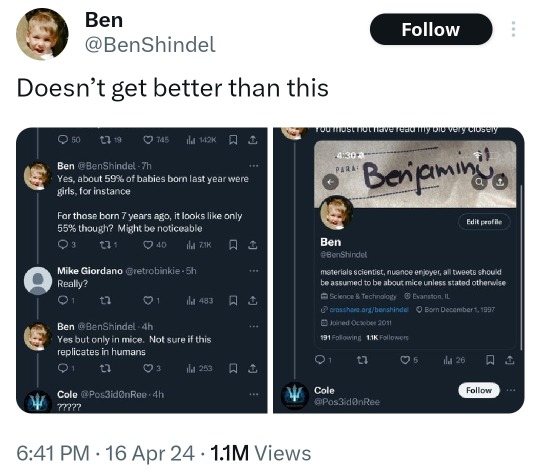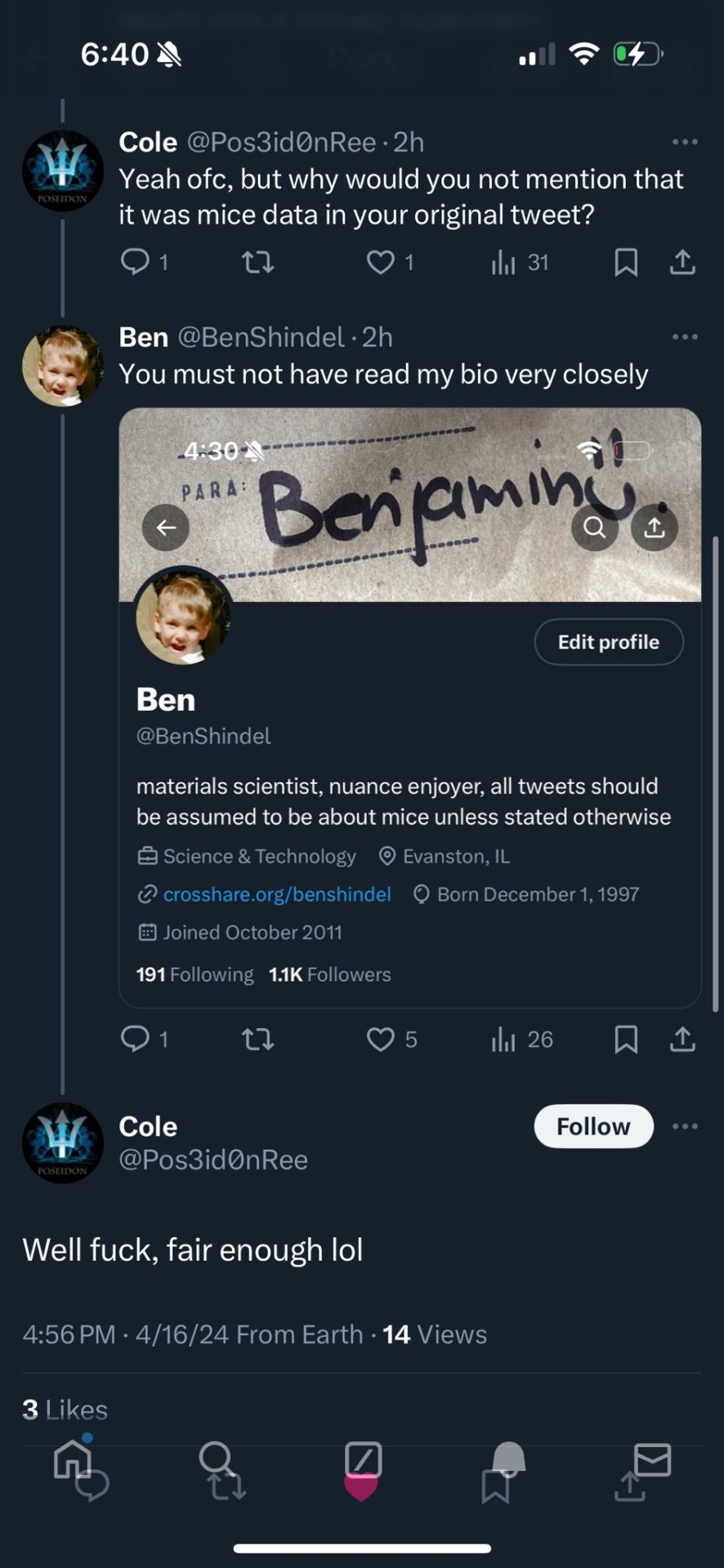Text
The Hunger Games movies work as well as they do thanks to one character more than any other, Caesar Flickerman.
It's a really really fine line he has to walk on, simultaneously drawing out emotions from the capitol audience, being in some sense kind to the tributes, drawing out their marketable traits, while still implicitly selling the story that the games are just a very exciting high stakes reality tv show.
If he were written worse, or the actor played him worse, it would fall utterly flat, and the capitol's tolerance of the game's existence would break suspension of disbelief.
#i don't know what the author intended but i don't think the criticism of the movies for constituting the same problems#as depicted in the books#is a serious issue#the hunger games inuniverse are bad not because of the form of the entertainment#but because of what the game's form accomplishes in the capitol#and what its substance accomplishes in the districts
2 notes
·
View notes
Text
imo people are doing the opposite of "witnessing through their actions" when they convert to christianity and decide that all of their art should henceforth suck
11 notes
·
View notes
Text
very awkward that 88 is both the nazi number and also, like, a lucky number in the most populous country in the world
4 notes
·
View notes
Text
What I was saying has nothing to do with incentives. I happen to think my claim is more novel and more obviously true than yours, though I do still agree.
one of my main annoyances with the jargon of callouts is that the harm of a statement consists of the harms of its reception, so if you are boosting the audience of a statement, even in order to criticize it, you are necessarily increasing its total harm, including psychological harm
i'm not saying it is always bad to signal-boost a bad statement in order to criticize it, but the language you use for this should not be about the "harm" that the statement did, but rather about preventing future harm, gaining some other more important benefit, or in order to follow some moral commitment which is not directly consequentialist
11 notes
·
View notes
Text

i googled this festival because it's not one I've seen mentioned before; it's israel's independence day
given that this hypothetical binational state is supposed to be distinct from israel, it shouldn't need to make this an official holiday
plus, kind of insensitive to celebrate this

4 notes
·
View notes
Text


--------
well, good, then, because it's not a hard one, you gotta go with preservation of life
#1f2 means 1 state for 2 peoples#though really it should be 1 state for all peoples#because even jointly ethnicities and religions and everything in between should not own states with meaningful armies#i'm not trying to avoid the attention of the person who posted this but also i don't want to give them attention they may not want
2 notes
·
View notes
Text
better call saul has shown me that life doesn't stop at 30 or 40. I got rest of my years to irreparably damage the lives of those around me
21K notes
·
View notes
Text
although phylogeny is very useful when doing biology, there's nothing magical about the string of english characters f-i-s-h that forces it to refer to whatever phylogeny grouping rather than marine creatures. whales are indeed not fish, but this is contingent on the details of how human society interacts with marine animals and whales and fish in particular
compare "vegetable" with "cruciferae", one of which is a lot more of a natural scientific category than the other:
it would be ridiculous to say "carrots can be 'an edible plant' if you like, but they cannot be vegetables"
The IUCN criterion used to exclude Pluto and the other dwarf planets–that they don't clear their orbits–is very useful if you're studying how stellar systems form and evolve. From that perspective, the eight major planets really are in a different class from any other bodies in the solar system, and probably deserve their own name. But if you're doing "planetary" science–i.e. studying the bodies themselves–then it's completely irrelevant. As far as anyone knows, the size you have to be to clear your orbit doesn't form any kind of natural boundary where the dynamics of geology or atmospheric chemistry abruptly change. For that matter, one of the other IUCN criteria, that you have to be orbiting the sun directly, is also not that relevant.
This is the crux of why terminological conventions shouldn't be treated the same as other kinds of scientific knowledge. Even if you can make the claim that the convention is in some sense objective, it will still be contextual. Statements about utility always are. Statements of scientific fact, on the other hand, should at least be true (if not relevant) in any context, regardless of by what means or within what discipline they were discovered.
91 notes
·
View notes
Text
The IUCN criterion used to exclude Pluto and the other dwarf planets–that they don't clear their orbits–is very useful if you're studying how stellar systems form and evolve. From that perspective, the eight major planets really are in a different class from any other bodies in the solar system, and probably deserve their own name. But if you're doing "planetary" science–i.e. studying the bodies themselves–then it's completely irrelevant. As far as anyone knows, the size you have to be to clear your orbit doesn't form any kind of natural boundary where the dynamics of geology or atmospheric chemistry abruptly change. For that matter, one of the other IUCN criteria, that you have to be orbiting the sun directly, is also not that relevant.
This is the crux of why terminological conventions shouldn't be treated the same as other kinds of scientific knowledge. Even if you can make the claim that the convention is in some sense objective, it will still be contextual. Statements about utility always are. Statements of scientific fact, on the other hand, should at least be true (if not relevant) in any context, regardless of by what means or within what discipline they were discovered.
91 notes
·
View notes
Text
Can't tell you how frequently I encounter posts on here for people with entirely opposite issues to me
2K notes
·
View notes
Text
I'm uncomfortable saying this confidently, but for reference my ideas on this are quite well reflected in if not caused by this part of Mere Christianity:


I'm uncomfortable saying it confidently because to some extent it benefits from the idea of a soul distinct from body, which is not entirely coherent
8 notes
·
View notes
Text
i don't know what i am like drunk but i have various different id-level impulses where it would be bad if I did them, and so I intend to never get drunk
3 notes
·
View notes
Text
i think someone who has a bunch of impulses to hurt people but controls these because they believe in doing the right thing should be judged inclusive of their selfcontrol
So here's a question: what does it mean to say that so-and-so is a wonderful person when sober, but that alcohol makes them a monster?
(This question is inspired by having just finished the Netflix series Maid, where it's basically the crux of the Sean character. Soon I might be posting a review of Maid, which I found engaging but deeply flawed in the character-writing.)
Speaking as someone who at one point in my life knew tons of people both in sober states and drunk states, I've come to a pretty clear conclusion since long ago that not only is one's drunk self not a separately compartmentalized person from one's sober self, but actually what comes out of someone when they're drunk (and thus less inhibited) is if anything a truer reflection of the kind of person they really are. Lovely people I've known become lovelier when drunk; douchey people I've known become downright a-holes when drunk. I know I'm no more capable of doing something horrible to someone when drunk than when sober. I guess I can't think of anyone I've known who seems genuinely lovely when sober but horrible when drunk (the closest I've seen is that some people's tempers are shorter when drunk, which I consider a different phenomenon), but I think if I did encounter someone like that in my life, I'd be able to connect their drunk behavior and personality with at least something subtly detectable in them when they're sober, just hidden under layers of conscious beliefs and care.
I've assumed that this is true of most other milder substances (there are some, which are highly addictive and euphoria-inducing, that make people into utility monsters and thus might turn a good person into an effectively evil one, but that's a different thing).
Now it's occurring to me I could be wrong. Maybe there are certain substances for certain people that act as a magical chemical trigger in the brain to drastically change whatever governs their fundamental morality. Maybe there's a particular combination of chemicals specially attuned to turning Liskantope into a terrible person while he's affected by them, and it just doesn't happen to be alcohol. But for some people, that chemical could be alcohol, which for them acts not only as a disinhibitor but by temporarily reconfiguring something more mysterious in their brains. I don't know. Until I see evidence of that, I'm going to continue judging people who are abusive and terrible while on the bottle as (at least in part) bad people.
57 notes
·
View notes
Text
I'm gonna try this
btw i think (low confidence) this is the sort of thing which wouldn't happen under tumblr the investment
the Investors don't care about making tumblr good but they do (low confidence) care and have the resources to deal with this sort of Objective technical issue
i just found out tumblr was storing over three GIGABYTES of cookies on my device without me knowing and that's why it's been running so fucking slow recently... incredible. anyways everyone go clear your fucking cookies. don't let this website run a goddamn video game's worth of disc space in the background for no good reason.
29K notes
·
View notes




